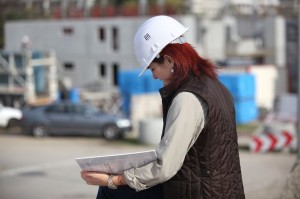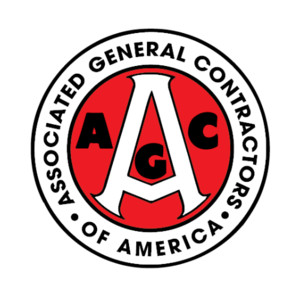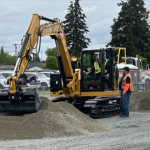Empowering women in construction: Fostering inclusivity and success
The construction industry has historically been male-dominated, but times are changing. With a growing emphasis on diversity and inclusion, construction companies have a unique opportunity to support and empower female construction workers both on and off the jobsite.
 By creating an environment that values and nurtures the talents of women, construction companies can not only bridge the gender gap but also tap into a rich pool of skills and perspectives, driving innovation and success in the industry.
By creating an environment that values and nurtures the talents of women, construction companies can not only bridge the gender gap but also tap into a rich pool of skills and perspectives, driving innovation and success in the industry.
Breaking down barriers
To support female construction workers, construction companies must first address the barriers that often hinder their progress. This starts with a commitment to providing equal opportunities, fair pay, and professional growth prospects. Creating an inclusive workplace culture entails promoting awareness and challenging gender biases and stereotypes. By actively involving women in decision-making processes, companies can ensure their voices are heard and their ideas are valued.
On the job site
Safety and comfort: One of the primary ways construction companies can support female workers on the job site is by prioritizing their safety and comfort. This includes providing well-maintained, gender-neutral restrooms, personal protective equipment designed for women, and appropriate changing facilities.
Mentorship programs: Establishing mentorship programs where experienced female professionals guide and advise newcomers can be immensely beneficial. These programs can help women navigate the unique challenges they might face and provide guidance on career progression.
Training and skill development: Offering training and skill development opportunities tailored to female workers’ needs can enhance their technical expertise and boost confidence. This could range from workshops on specialized techniques to leadership training.
Flexible work arrangements: Providing flexible work arrangements, such as part-time options, remote work, or job-sharing, can accommodate the diverse needs of female workers, especially those juggling family responsibilities.
Family-friendly policies: Implementing family-friendly policies, like parental leave and on-site childcare, can help female workers balance their personal and professional lives.
Off the job site
Educational outreach: Construction companies can engage with schools and universities to promote careers in construction among young women. Workshops, career fairs, and scholarship opportunities can spark interest and provide the necessary resources for entering the industry.
Networking and community building: Encouraging participation in industry associations, conferences, and networking events can help women connect with peers, build relationships, and access career-building opportunities.
Diversity and inclusion training: Regularly conducting diversity and inclusion training for all employees can help foster a respectful and understanding workplace culture, where everyone feels valued and respected.
Promotion and leadership opportunities: Construction companies should actively identify and nurture female talent for leadership positions. Establishing clear pathways for career advancement ensures that women have a fair shot at reaching top roles.
Recognition and awards: Acknowledging the achievements of female construction professionals through awards and recognition programs can motivate and inspire others to excel.
Creating an inclusive and supportive environment for female construction workers requires a concerted effort from construction companies. By breaking down barriers, providing targeted support, and fostering a culture of equality, construction companies can empower women to thrive both on the job site and off. Embracing diversity not only enriches the industry but also contributes to the overall success and innovation of construction projects. As we move toward a more equitable future, construction companies must take the lead in championing the advancement of women in the construction industry.








